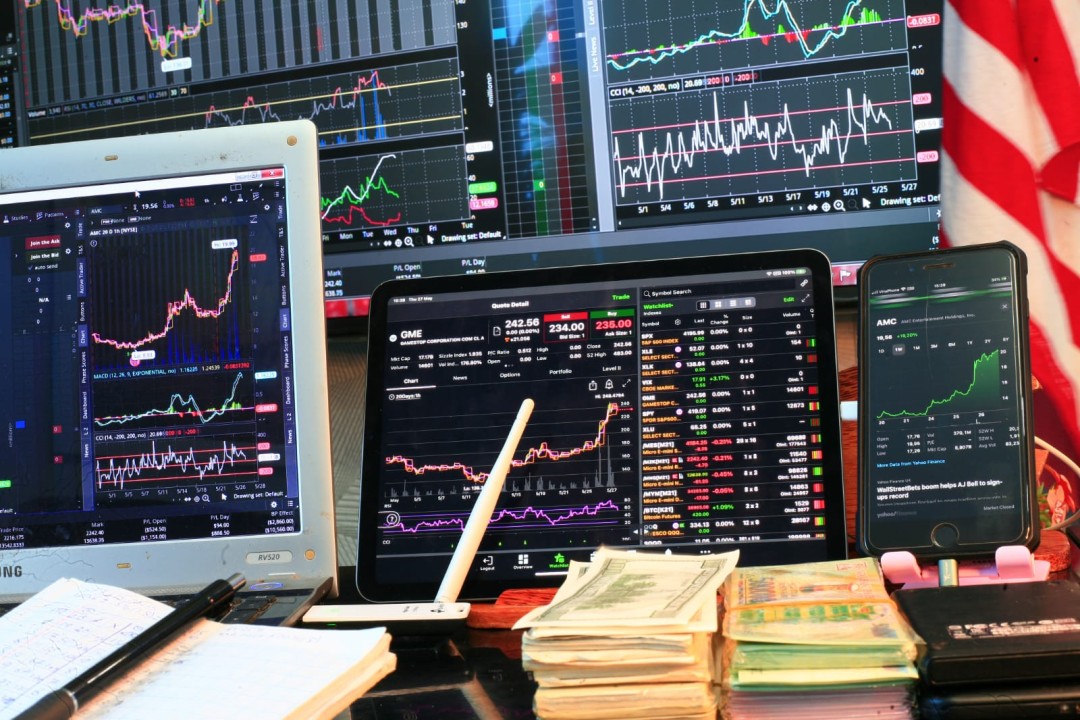
Author : Naveen Prasad, Founder & MD at Group Agilis
January 21, 2022
Major Global Economic Events of 2021
A Year of Financial Volatility and Political Shifts
2021 was a roller-coaster ride, from crypto crashes to surge in investments in web 3, from rise of China’s economy to the fall of the Turkish Lira, the year was full of chaos in the financial sector.
Biden becoming president, the German chancellor stepping down after 26 years, and the rise of the Taliban in Afghanistan were some of the major political changes around the world, impacting the global economic structure.
While the economies were recovering from a covid setback, the number of unicorns increased distinctly. Primarily fintech and ed-tech saw enormous growth and a massive surge in unicorns around the globe.
The year went by and saw the global unicorn tally almost doubling to 1,058—from last year's 586. The USA led with 487 unicorns, up from last year's 254; followed by China on 301, up from 74. And India produced 33 unicorns in 2021 making it the best year for Startups globally.
Key Events That Shaped the Global Economy
Among all the uncertainties, some special events impacted the global economy which had more repercussions than others. Some of the major economic events in 2021 which will still emerge in coming years and will impact the global economy down the line were:
1. The GameSpot Market Crash
What happens when some crazy investors try to mess with the markets? They help professional traders make quick cash or they fool the professionals to make some quick cash. This is what happened with GameSpot shares when a group of retail investors on an internet forum called Reddit started raising the value of the stock and raising the stock price by 1,700 percent.
Short-selling became a game instead of trade. The Fed interfered to stop the market speculations to sustain the economy. The financial losses were in billions resulting in fear in retail investors.
2. The Web 3.0 Revolution / The Metaverse World
Around the speculations this year marked the end of the web 2. The revolution of web 3.0 already began with blockchain, cryptocurrencies, NFT’s, etc. but the final dent was done by the official announcements of metaverses. Different companies Facebook, Microsoft, Nvidia, etc. revealed their projects and plans.
The era of decentralized economy is being initiated by the coming of web 3.0. The creator's economy will soon be reality and the metaverse may become our new reality.
3. Crypto Crash 2021
If there has to be a single most influential person in cryptocurrencies, it has to be Elon Musk. A single tweet by him was able to manipulate the pricing of a cryptocurrency. And his love for DogeCoin is well-known.
Being a very volatile product it saw a massive crash in 2021. On 13 April 2021 the value of Bitcoin hit a record high of $63,375. On 27 October 2021, Bitcoin crashed to $58,000. And on 5 November it reached a record high of $68,521 and following 4 December fell around 12% down to $42,000, falling nearly 30% peak-to-trough on a 24-hour basis.
4. Socialism Taking Over the World
While starting 2021 it was speculated by trends and charts whether China will overtake the USA as the world’s largest economy. China ensured the top position before the end of the fiscal year. Some of the major reasons were the power of labor and the centralized authority over monetary policies. Being a socialist economy it’s quite spectacular to surpass a capitalist economy that was on top formerly and consistently.
Is it dangerous for the world economy that a socialist economy took over a capitalist economy? What will happen to the decentralized approach by web 3 then? Coming years are going to be interesting.
5. Fall of Turkish Lira
How can a country’s currency come to free fall? Inflation and bad governance. Turkey has a deficit in the current account and even to that the supply of Turkish liras in the market has been rising rapidly when compared to relatively harder currencies like the U.S. dollar resulting in the fall of the Turkish Lira.
The monetary policy is decided by Central banks to control the economy. But Turkey’s president Mr. Erdogan’s took the charge himself to benefit the economy resulting in the opposite. He lowered interest rates to maximize the country’s output, now due to the coming elections he’s nowhere to think of the economy and still lowering rates to benefit the voters avoiding the long-term consequences.